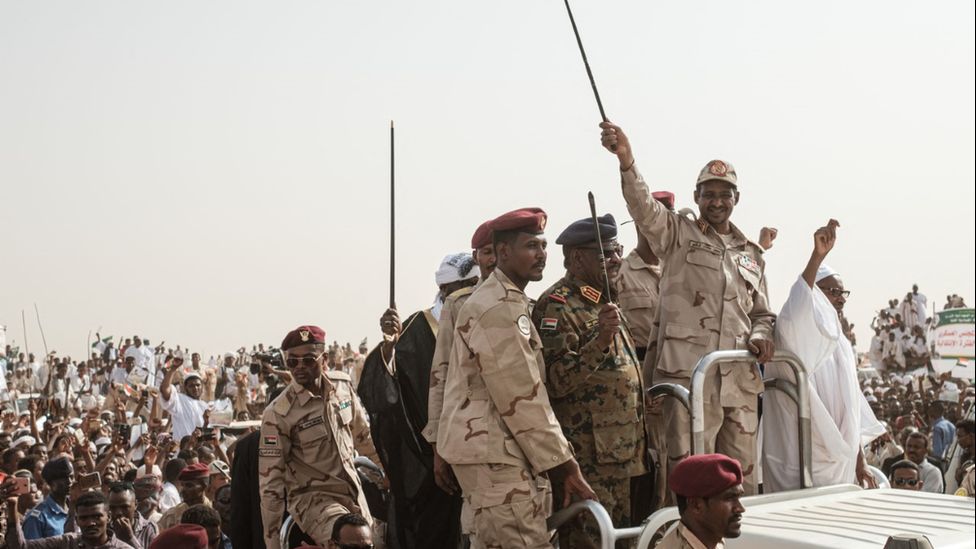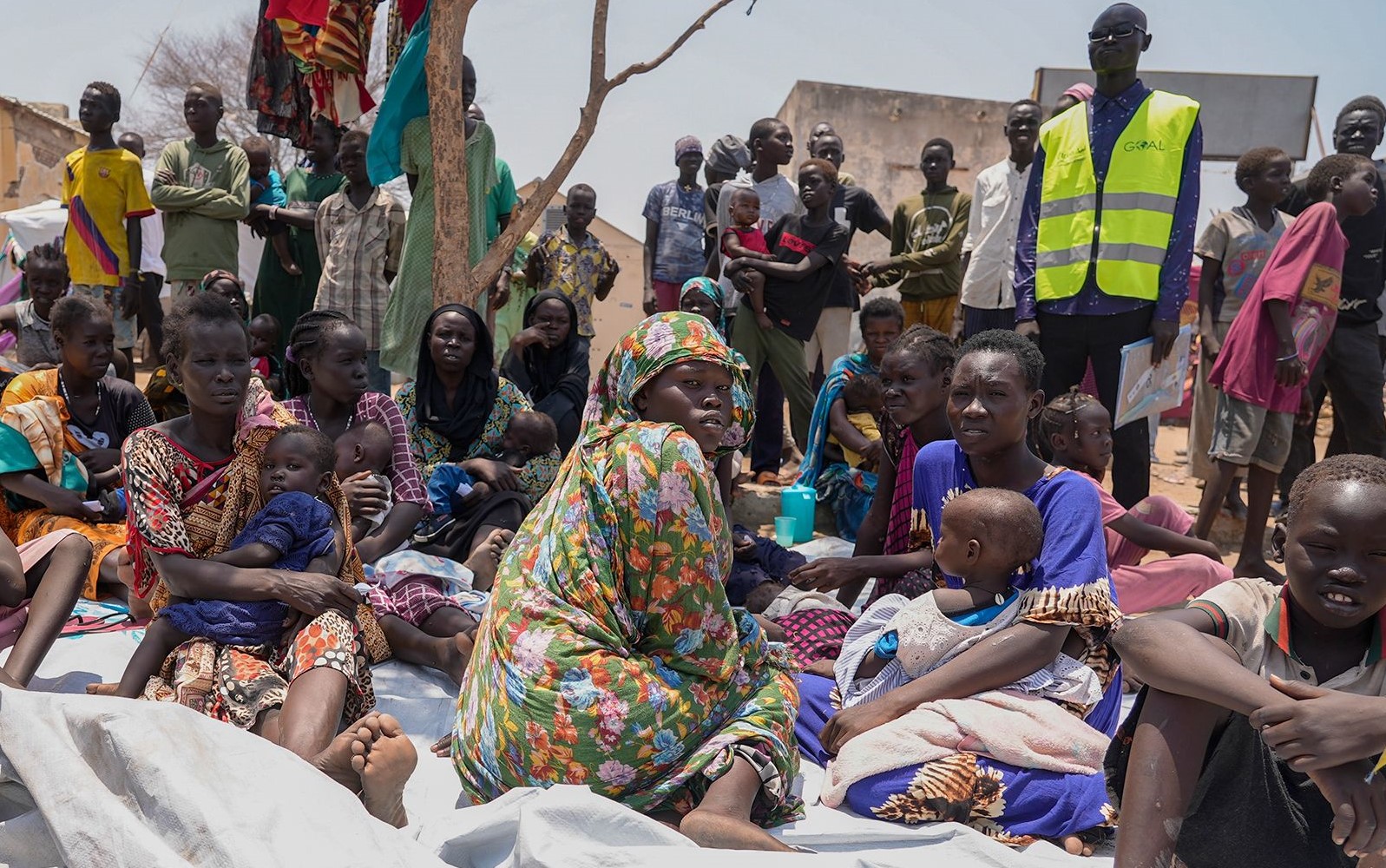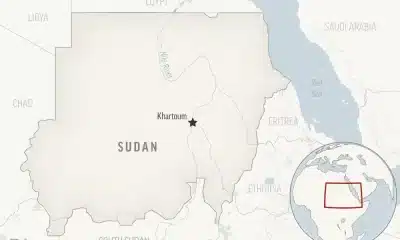News
Bodies Pile Up Without Burials In Sudan’s Capital, Marooned By A Relentless Conflict

KHARTOUM, Sudan —In the capital of Sudan, Nobody could have predicted the funeral: Sadig Abbas’ dead body was hurriedly put into a small, unmarked grave in Khartoum.
According to Awad el-Zubeer, a neighbor of the deceased, even the few family members and neighbors who could attend were preoccupied, scanning the cemetery’s environs for signs of an approaching fire.
Funerals in Khartoum are impossible due to the nearly four months of bloody street fighting between the Sudanese Army and the paramilitary Rapid Support Forces (RSF). Residents and local medical organizations claim that bodies are rotting in the city streets, marooned by a conflict showing no signs of abating.
“Given these circumstances, if you asked me exactly where his body was buried, I couldn’t tell you,” El-Zubeer stated.
Information about Sudan’s casualties is scarce. The violence has claimed more than 3,000 lives, according to the country’s health minister, Haitham Mohammed Ibrahim, but there hasn’t been any new information since. According to campaigners and local doctors, the number is probably much higher.
The number of unburied bodies has also not been estimated by a medical organization, despite mass graves and widespread ethnic massacres being discovered in the southern Darfur region of the country.
According to the country’s doctors association, most people from the capital have been killed in the crossfire as the formerly tranquil metropolis has become urban warfare. Some reportedly starved to death while being imprisoned by the gun battles that raged outside, while others perished because they could not receive basic medical care.
Their burials would have been elaborate affairs lasting days in times of peace. In Sudan, memorial services for the departed frequently draw large crowds. By Islamic practice in Sudan, bodies are typically cleansed and blessed before being buried in family-dug graves at cemeteries.
Nobody could have predicted the funeral in the Sudan capital: Sadig Abbas’ dead body was hurriedly put into a small, unmarked grave in Khartoum.
According to seven former and current inhabitants of the capital region, the conflict between the country’s two highest generals, army chief Gen. Abdel Fattah Burhan and RSF commander Mohammed Hamdan Dagalo, has shattered this tradition. Three people spoke under the condition of anonymity for fear of retaliation.
Several people claimed that getting to the roughly twenty cemeteries in the capital was impossible when they tried to bury family members, friends, or people they were detained with.
When the crisis started on April 15, almost 100 university students were trapped inside Khartoum University. A fellow student reported that Khaled, a student, was struck in the chest by a stray bullet and passed away soon after.
He spoke anonymously out of concern for his safety since he didn’t want to be singled out. “We dragged his dead body to the lower levels (of a building) to stop it rotting,” he added.
After getting permission from Khaled’s family, he and others covered Khaled’s body in an improvised Islamic burial shroud and buried him on the university grounds beneath a tree.
A resident of Omdurman’s Beit al-Mal neighborhood, near the Nile River from Khartoum, Gasin Amin Oshi, claimed that RSF soldiers barred a neighboring family from interring a loved one in a local cemetery. Instead, they interred the woman on a school’s grounds after she passed away naturally.
Nobody could have predicted the funeral in the Sudan capital: Sadig Abbas’ dead body was hurriedly put into a small, unmarked grave in Khartoum.
Most locals claimed RSF troops, who govern substantial portions of the city, frequently create disruption. The army bombarded RSF camps in the capital during the early stages of the battle, forcing the RSF soldiers to flee and take over abandoned residences as bases. The army then used artillery and aircraft to attack civilian neighborhoods. U.N. statistics show that more than 2.15 million people have subsequently left Khartoum State.
El-Zubeer claimed that after RSF soldiers raided Abbas’ home and discovered that one of his brothers was an army officer and the other an intelligence officer, Abbas was shot and died. He claimed that once Abbas’ body was taken to a hospital, the RSF first forbade the burial without justifying but finally gave in to the family’s appeals.
However, according to el-Zubeer, most people either didn’t know about the funeral on June 30 or were too terrified to go. Since the start of the conflict, the nation has seen frequent power outages and internet shortages.
Mobile phones are just as beneficial for communication as a pack of cigarettes, according to el-Zubeer.
The RSF’s principal spokesperson, Youssef Izzat, told the AP that the leadership had not instructed to stop civilian burials. He said that the only reason any were stopped was because there was fierce combat nearby.
Nobody could have predicted the funeral in the Sudan capital: Sadig Abbas’ dead body was hurriedly put into a small, unmarked grave in Khartoum.
Contrarily, locals viewed the paramilitary as lawless and frequently driven by boredom and enjoyment. But occasionally, they claimed, there were good deeds.
One South Khartoum resident claimed that despite robbing individuals in his uncle’s neighborhood, a group of RSF militants unexpectedly offered to transport and bury the uncle after he passed away in July from natural causes.
Sudan’s Red Crescent has gathered and buried bodies throughout the capital since June. The group said it has discovered and buried at least 102 remains, most of whom are unidentified warriors from both sides, taking advantage of brief lulls in the battle.
A Red Crescent employee reported that after the bodies were gathered, they were photographed and given an identity number.
According to the international charity Save the Children, thousands of bodies may still be unburied in the city because many battle-torn areas are unreachable. A community organization from the Bahri neighborhood of the capital’s north requested last month that medical organizations pick up the bodies of roughly 500 RSF militants lying in wait on the streets. In recent weeks, an AP journalist in south Khartoum counted at least 26 bodies lying on the streets, mostly civilians and RSF fighters.
Nobody could have predicted the funeral in the Sudan capital: Sadig Abbas’ dead body was hurriedly put into a small, unmarked grave in Khartoum.
One victim had been lying in the open for so long in Khartoum’s al-Sahafa neighborhood, according to el-Zubeer, that the bones could be seen.
Unidentified bodies are typically transported to mortuaries. According to Dr. Atia Abdalla Atia, president of the Sudan Doctors Union, only five of the city’s roughly twenty hospitals are still in operation, and at least four have been abandoned due to fighting in the capital region.
International organizations and rights organizations worry that the rainy season in Sudan will result in more fatalities and infrastructural damage. Numerous people were killed by flooding last year.
Water supplies can become contaminated by decaying bodies.
According to el-Sadig el-Nour, the director of the Islamic Relief Worldwide for Sudan, many “people now drink from wells or the River Nile” out of desperation.
SOURCE – (AP)
































